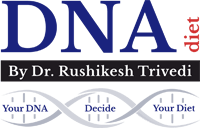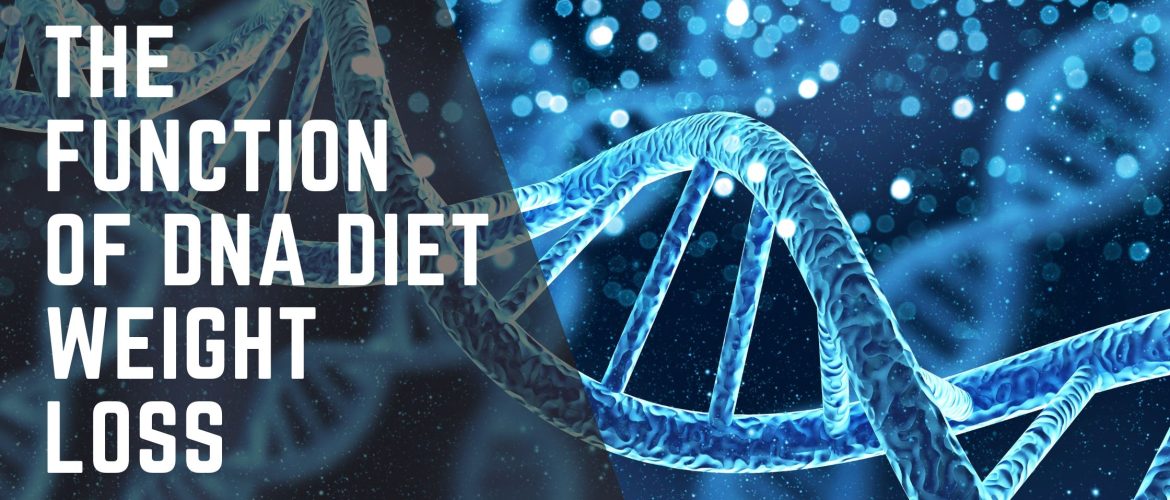The DNA Diet: The Future of Personalized Nutrition
DNA diet has become the hottest topic among nutritionists, dieticians, and health-conscious individuals since its introduction. Some people believe that following a balanced DNA-based diet helps to lose weight without strict dieting, while others argue that genotype doesn’t play a significant role in weight gain or loss. However, many experts believe that personalized diet plans based on genetic studies are the future of wellness. With advancements in genetic research, scientists are continually discovering how genes influence metabolism, digestion, and food sensitivities, making personalized nutrition an increasingly relevant topic.
Do you also want to know how DNA-based diets work? Read on to understand the science behind it and how it can benefit you.
The Function of DNA Diet for Weight Loss
The concept of a personalized diet plan originated to eliminate the negative impacts of traditional dieting. Many people experience weight gain immediately after stopping a restrictive diet. Additionally, long-term dieting can lead to nutritional deficiencies and weakness. On the other hand, a DNA-based diet plan helps in weight loss without excessive restrictions and ensures the body receives essential nutrients. By taking into account an individual’s unique genetic makeup, dieticians can formulate meal plans that align with their body’s specific needs, minimizing deficiencies and promoting sustainable weight management.
It is well-known that specific foods affect individuals differently due to genetic variations. This is where DNA fasting and personalized nutrition come into play. A DNA-based diet plan is customized after analyzing an individual’s genotype. By understanding the body’s genetic makeup, nutritionists create a diet plan that enhances metabolism and promotes sustainable weight loss. Unlike generic diets, DNA-based nutrition helps in reducing cravings, optimizing digestion, and improving energy levels, making it an effective and scientifically backed approach to weight management.
How Does It Work?
Most researchers and nutritionists believe that a personalized diet is beneficial for overall health. It is planned after conducting a DNA test and applying the principles of nutrigenomics. In India, DNA testing is becoming increasingly popular for understanding an individual’s genetic predisposition to weight gain, metabolism efficiency, and food intolerances. The test results help dieticians recommend specific foods that enhance digestion, energy utilization, and disease prevention. Personalized recommendations may include details on how well a person processes macronutrients, the impact of specific vitamins, and potential food sensitivities that may be hindering optimal health.
A planned and personalized diet based on DNA reports is particularly helpful for individuals suffering from chronic conditions such as diabetes, obesity, or digestive disorders. Since the diet is structured according to an individual’s DNA sequence, it ensures that the body receives all essential nutrients without unnecessary food restrictions. Moreover, this method helps in the prevention of metabolic disorders by addressing genetic predispositions before they manifest into health issues. With the rise of DNA-based diet plans, people are beginning to see the benefits of a structured and scientifically guided approach to nutrition.
How to Choose a Perfect DNA-Based Diet Plan?
Now comes the question: how do you choose the ideal DNA-based diet for yourself? Nutritionists agree that DNA plays a crucial role in designing the perfect diet plan for maintaining overall health. Genetic composition determines whether a person responds better to a low-fat, low-carb, or high-protein diet. This means that what works for one individual may not necessarily work for another, reinforcing the need for personalized dietary strategies based on genetic findings.
Your DNA report helps dieticians customize meal plans for faster weight loss, better digestion, and disease management. For example, some people may benefit from high-protein diets due to their muscle composition, while others may need a fiber-rich diet to maintain gut health. Understanding these genetic differences ensures that the diet plan is both effective and sustainable. Additionally, DNA-based diet plans often integrate lifestyle modifications, ensuring that individuals can follow through with their nutritional plans in a practical and sustainable manner.
However, before making any drastic changes to your diet, it is essential to consult with your doctor. In addition to a DNA test, factors such as medical history, current health conditions, and lifestyle habits must also be considered when planning a new diet. Reading more articles and expert recommendations on our website can provide additional insights into personalized nutrition. Diet plans should be complemented with proper hydration, exercise, and sleep to maximize their benefits.
Conclusion
Does a DNA-based diet actually work? This is one of the most debated topics among nutritionists and dieticians. While there is no definitive conclusion, many studies suggest that personalized diet plans based on genetics yield better health outcomes. However, science is still evolving, and we have yet to map out all genetic variations affecting metabolism and weight loss. The accuracy and effectiveness of DNA-based diets continue to improve as more research is conducted in the field of nutrigenomics.
The key takeaway is to avoid shortcuts and embrace a scientific approach to nutrition. A DNA-based diet plan, customized by a professional dietician in Ahmedabad, not only supports systematic weight loss but also lowers the risk of future diseases. Genetic insights provide valuable information, but it is essential to combine these findings with a balanced approach that includes lifestyle changes and proper medical supervision for long-term success.
Call or WhatsApp at 099133 30931 to learn more about how a personalized DNA-based diet plan can transform your health!


